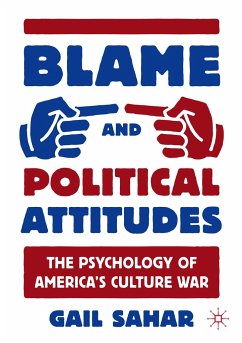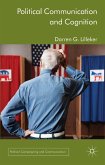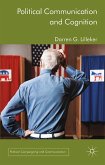Questions about the causes of events, from terrorist attacks to mass shootings to economic and public health crises dominate conversations across the US. Recent research in social psychology outlines the process we use to identify the causes of such events, reveals how we determine who is responsible or to blame, and documents the far-reaching consequences of these determinations for our emotions, our actions, and our attitudes.
Current approaches to political opinions posit a direct path from a person's worldview (liberal or conservative) to their attitudes toward specific political issues like abortion and welfare. This book argues that blame is the missing link between the two.
Gail Sahar demonstrates that the current emphasis on value differences, whether between conservatives and liberals in the U.S. or between religious and secular countries on a global level, ignores commonalities in the way people think about issues. She proposes that focusing on perceived causes of social problems is a much more promising avenue for dialog than trying to reconcile fundamental belief systems. Informed by the latest psychological science, this new take on how to change attitudes has implications for anyone seeking to influence the viewpoints of others, from politicians and activists to ordinary people talking about current events at a dinner party.
Current approaches to political opinions posit a direct path from a person's worldview (liberal or conservative) to their attitudes toward specific political issues like abortion and welfare. This book argues that blame is the missing link between the two.
Gail Sahar demonstrates that the current emphasis on value differences, whether between conservatives and liberals in the U.S. or between religious and secular countries on a global level, ignores commonalities in the way people think about issues. She proposes that focusing on perceived causes of social problems is a much more promising avenue for dialog than trying to reconcile fundamental belief systems. Informed by the latest psychological science, this new take on how to change attitudes has implications for anyone seeking to influence the viewpoints of others, from politicians and activists to ordinary people talking about current events at a dinner party.








